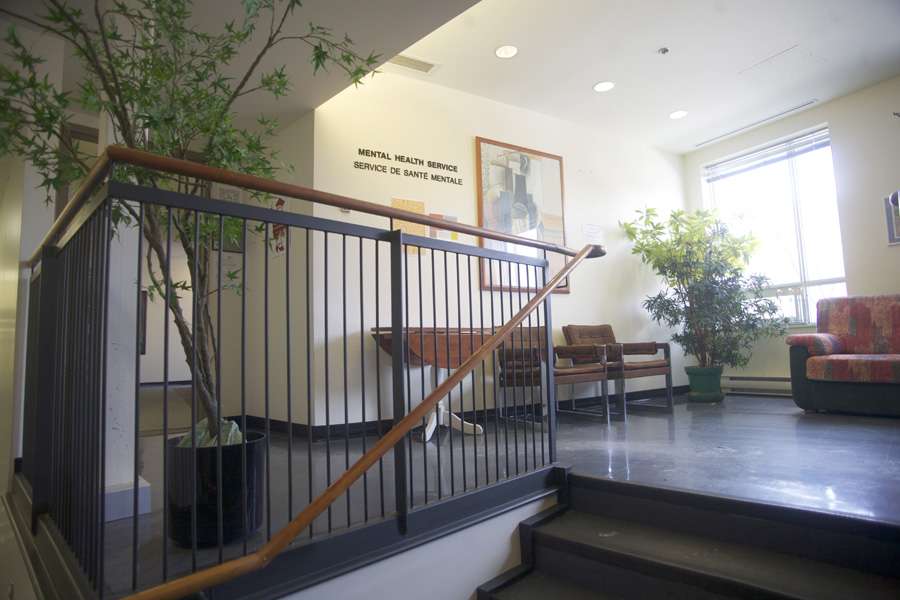At the beginning of the Fall semester, McGill University Student Services quietly closed its Eating Disorder Program (EDP). Since 2009, the EDP has provided professional healthcare, support, and group therapy for students grappling with all forms of eating disorders. September’s reforms dispersed these services across existing counselling and psychiatric departments, and have temporarily removed group therapy sessions and relocated the dedicated nutritionist for the EDP.
According to Martine Gauthier, executive director of McGill Student Services, several factors were at play in the decision to rearrange the EDP. These included the resignation of the EDP nurse, widescale changes to the structure of counselling and psychiatric services, and the adoption of a flexible, case-based Stepped Care approach to mental health treatment. Gauthier also pointed out that in 2013, $500,000 of the total Student Services budget of $11 million was going to the EDP in order to serve 50 to 70 students—which the administration deemed to be financially irresponsible.
Following the announcement of EDP cutbacks, McGill students voiced concerns that Student Services had discreetly cut valuable resources without patient consultations or recourse. Gauthier emphasized that—other than the resigned nurse—all the components of the EDP were reintegrated into the new mental health system. While the EDP dietitian was given additional responsibilities, such as collaborating with Healthy McGill to provide preventative services, Gauthier reassured students that the dietitian would be given an additional fourth workday to do so.
“The components of the [EDP] still exist,” Gauthier said. “For example, our psychiatrists are still doing assessments, we still have a dietitian attached to the psychiatrist unit who has a specialization in eating disorders. We have four psychologists in counselling services who have specialities in eating disorders, and also this winter we’ll be [re]starting […] group sessions.”
In the aftermath of the program changes, several students shared their personal stories with The McGill Tribune about the poor treatment they received under the EDP while it was still running. One student, Alex*, recounted being rejected for admission to the EDP because it was over capacity.
“In my first year at McGill I had debilitating anorexia that really put my health in jeopardy,” Alex wrote in a message to the Tribune. “The [EDP] was full and could not admit me for the next few months […and] mental health services was so backed up that it couldn’t even get me notes in time, which made me fail my exams and classes.”
However, even when there was room to join the EDP, only students with specific disorders were admitted, according to another student, Casey*. Casey urgently needed the EDP’s support, but was redirected to a different faction of mental health services.
“I was literally so weak I had to crawl to my kitchen [yet, when I tried to join the EDP, they] told me that they wouldn’t be able to see me without a doctor’s note,” Casey wrote in a message to the Tribune. “I spent 13 hours at the hospital waiting for a referral […but then the EDP] told me that they couldn’t help me because my [eating disorder] seemed more related to anxiety [and] stress.”
According to a student formerly in the EDP, Jamie*, the program had strict policies that, if broken, warranted student expulsion from the program. Jamie objected to the requirement that they inform their parents of their condition, and was consequently removed from the EDP.
“For them to kick me out for not letting them contact my parents, which shouldn’t even be a factor in me receiving treatment, I think was extremely unprofessional,” Jamie wrote in a message to the Tribune. “I ended up spending a ton of money on outside treatment in Montreal that wasn’t covered by McGill’s stupid international health insurance.”
While Student Services is still developing a timeline for the rearrangement of the EDP, students can access treatment resources through counselling services or independent resources such as Clinique Baca, the Argyle institute, Anorexie et boulimie Quebec, and many others across Montreal.
*Names changed at request of the students.









I benefitted from the program and was never asked for a doctor’s note nor faced with the requirement to inform my parents. My therapist even extended the number of sessions beyond what was initially planned to make sure I left the program in good shape. The weekly group sessions with a psychoeducator, nurse and nutritionist, as well as a weekly group eating session, were welcoming. The program helped me tremendously and with a note from my therapist I was allowed to drop a course late in the semester, and overall this program saved not only my degree but my sanity. I hope you consider editing this article by adding a positive side to it because the work that was put in by the professionals on that team may not have been perfect but deserves to be treated more fairly. Thank you